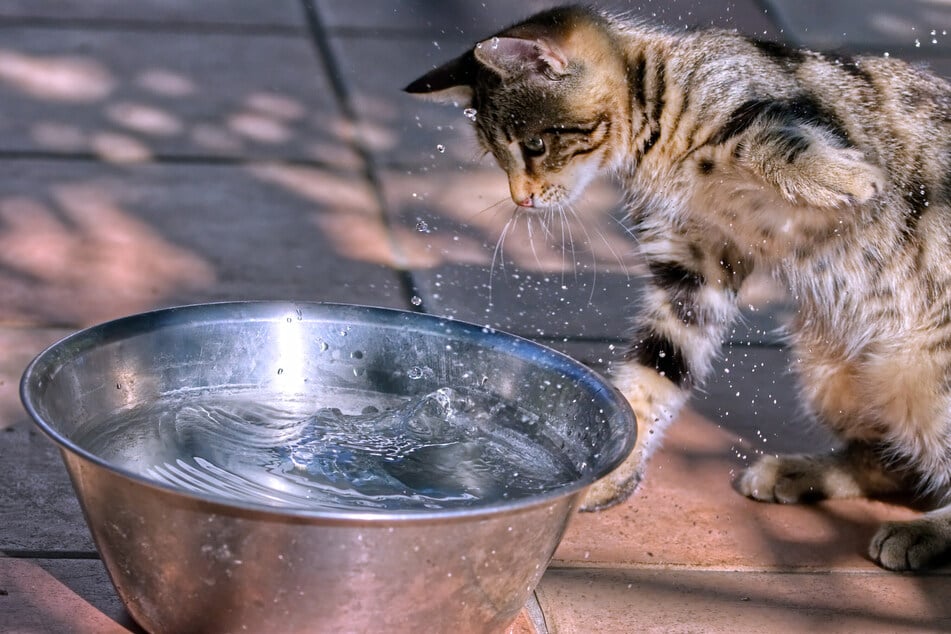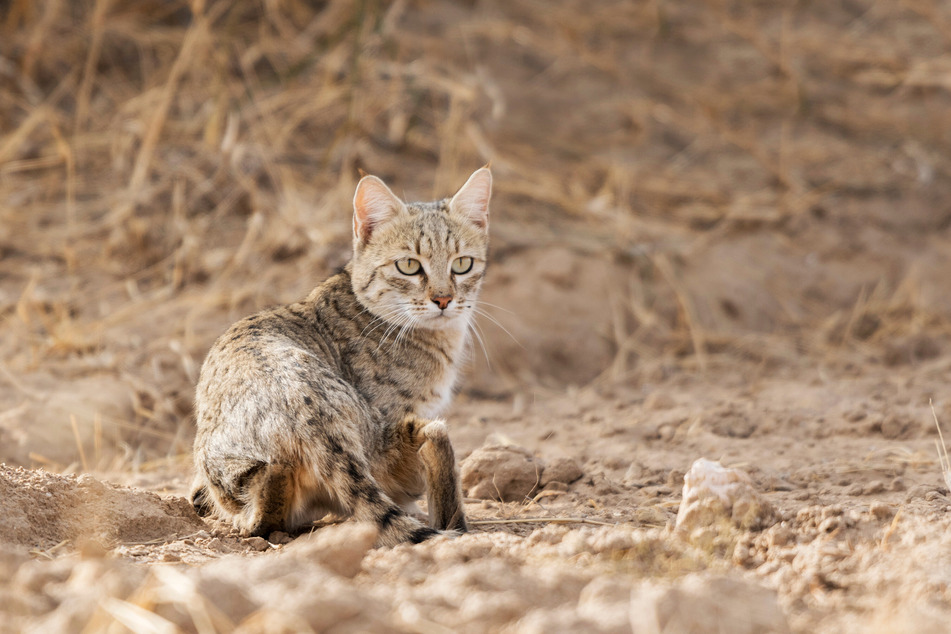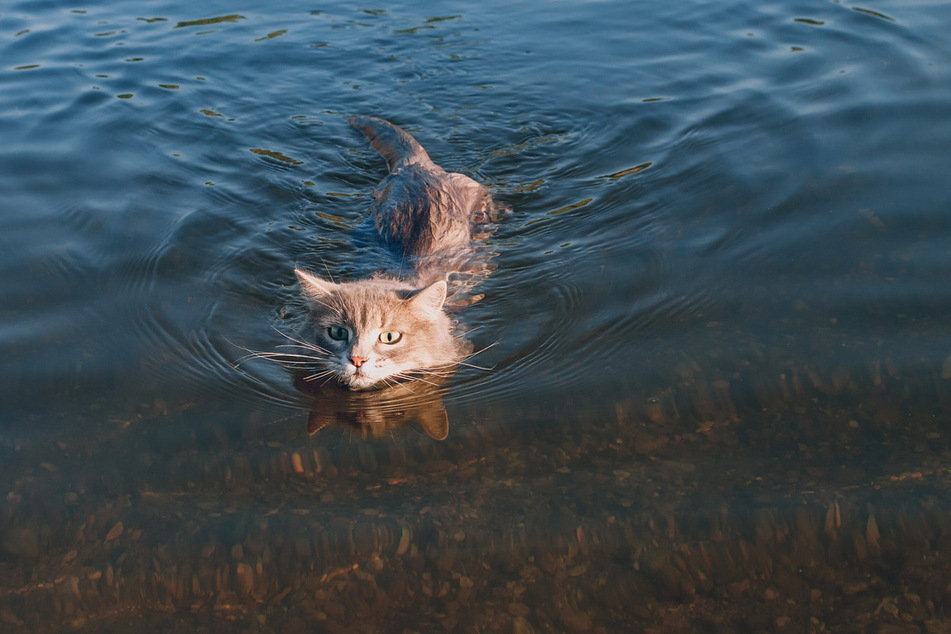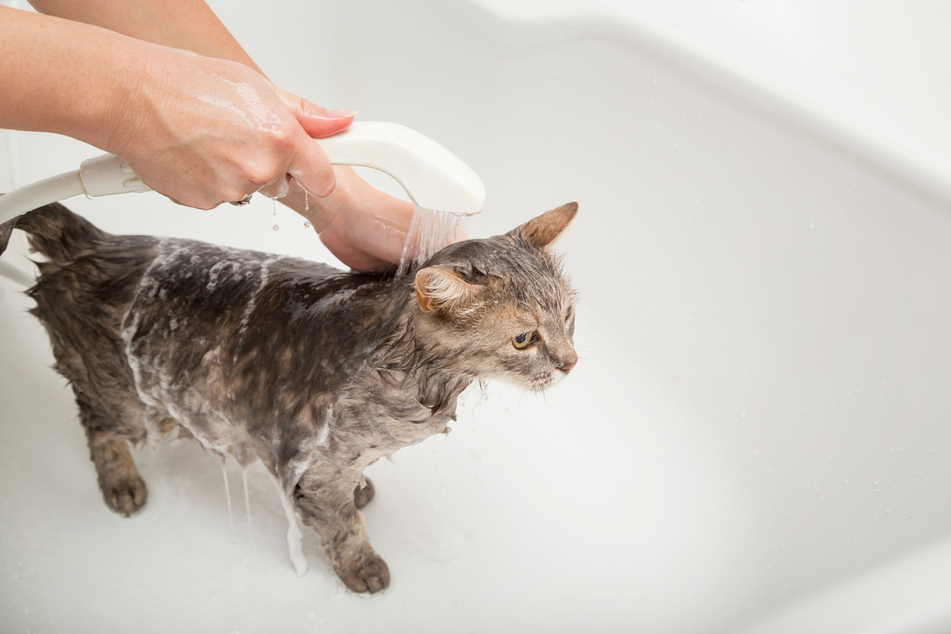Why do cats hate water?
Cats love to explore, climb, and be super active, but the one thing they truly seem to hate is getting wet. Why do cats hate water so much, though, and what's behind this strange phenomenon?

Once your cat has been let outside, it can be very difficult to get it to come back in again. It's understandable, the sunshine can be incredibly pleasant, and there's a lot to explore and discover out there.
However wonderful the outside world is, though, nothing is more certain to bring your cat running home than a little bit of rain.
Precipitation is a cat's worst enemy, sometimes worse than the tabby down the road or a needle up the booty at the vet.
But why is it that your cat hates water so much? It can swim, after all, so what's up with that? With this cat guide, let's find out!
Why don't cats like water?
The obvious way to start the discussion is with a simple acknowledgement: Not every cat hates water, but it is certainly more common than not.
The reasons behind these fears are eclectic and complex, ranging from basic instinct to personal experiences, but all reasons are real, legitimate, and should be respected by prospective or current cat owners.
While you will see short viral vids of swimming cats or some who love a shower, and you may even have a friend or two who swears it's a myth, most cats do have a distaste for water – and we're here to discover why.
These are the top five reasons why cats hate water.

1. Cats don't like water due to their history
If you go back and research the history of cats, you will quickly discover their ancestors have only had very moderate interactions with water over the years. This is primarily because they originated in dry and desert-bound regions far from the ocean, where the only water they'd come in contact with is in the context of a river, stream, or watering hole.
Most domestic cats originate from these common ancestors, and not from the tigers that prowl rainforests and swim in the rivers. As a result, while it might seem strange that a cat would hate water while a tiger would love it, it's not so unexpected.
2. Cats hate water because they lose the protection of their coat
One major reason why cats despise getting wet is because the water removes many of the protections that their fur provides. You see, a kitty's fur is an important part of its body, protecting it from the cold and keeping it warm. If their fur comes into contact with large amounts of water, this insulating effect is reduced.
Because of this, your cat may experience difficulty regulating its body temperature, which can be quite dangerous in certain situations (for example, if it is freezing cold). On top of all that, it takes ages for a cat's fur to fully dry and, as a result, these negative impacts will last for a long time.
It's important to recognize the risks associated with a wet coat of fur and act upon them. If it is winter and your cat is wet, for example, it's time to warm it up inside.
3. Cats dislike getting wet as their fur becomes heavy and immobile

Quite separately from the issue of temperature regulation, your cat will have serious mobility problems if it gets excessively wet.
Seeing as cats have fur, not hair, the density is much higher, leading it to absorb more water and become extremely heavy and immovable. This then affects both the cat's balance and its ability to move.
This can get particularly dangerous if your cat has no way of getting out of the water source. While your cat is capable of swimming, it may struggle to stay afloat and may quickly run out of energy due to the increased weight it has to drag around when wet. In such a situation, you likely need to rescue your cat as quickly as possible.
Important: Drowning is a serious risk for cats who have been water-logged. With that in mind, it is best to always take your cat to the vet after a worrying experience. You don't want water to have gotten into its lungs, for example.
4. Loss of scent and odor make cats hate water
Everyone knows that cats rely on their scent and odor to mark territory and let other cats know that they are nearby. Having been completely drenched, though, this reliance can become a liability. While they will try to restore this scent by licking themselves, which will also dry them, it is better if this is unnecessary from the beginning.
If your beloved kitty gets wet, it will likely get quite distressed by the fact that it has lost its own scent, due to how integral smell is to the way that cats communicate. As a result, don't be surprised if your cat now embarks on a long grooming session.
5. Negative experiences with water trigger negative feelings towards it
As with humans, negative experiences can impact the way that a cat feels about certain things. One of those things can be water, as a cat's fear of nearly drowning or being attacked while in water can be carried with it for the rest of its life, creating panic and angst.
The younger years of a cat's life are particularly formative, so if your kitty has a bad experience as a kitten, it could potentially stick with your pet for many years to come. In such a situation, treatment for cat anxiety is not a bad idea.

Cats hate water, but can they swim?
Most domestic cats will be instinctively able to swim. This means that, while they will absolutely despise the fact that they've fallen into water, they likely won't drown if they slip into your swimming pool. As we established in our article on how cats swim, though, they should still stay away from larger bodies of water, especially salt water, wherever possible.
While cats that have not been exposed to water or swimming much throughout their lives will not be particularly strong or efficient when in the water, they will be able to orient themselves and keep their head above the water. They will do this while paddling their paws, of course, and trying to get back to land.
It's important to note, however, that a cat's age, health, and weight are all factors in its ability to swim. Additionally, their fur will weigh them down significantly, reducing the distance they can safely make if overburdening and heavy. The temperature of the water is also a factor in their survival chances.
Ultimately, you shouldn't be throwing your cat into the swimming pool or giving it little kitty swimming lessons. It should be just fine if it accidentally falls in, but will resent you if you force it into water.
Why do only some cats hate water?
Of course, every cat is different, and it is true that some cats will enjoy swimming in water. There is no specific reason why some cats like swimming while others hate any kind of water, in the same way that there's no specific reason why your cousin Bob hates mushrooms.
It's a personality thing, nothing else.
Cats don't love water, but they do love fish!
As much as a cat might hate water, you couldn't say the same about its opinion on fish. The fact that these fluffy fellows are capable of swimming and on the whole love to eat and hunt fish makes it all the more bizarre that they usually hate water as much as they do.
Ultimately, though, it all comes down to their personal experiences as well as basic instincts. Cats want to be comfortable, and if getting wet ruins that for them, let's try to keep them dry and safe.
Cover photo: 123RF/Nykolinium




